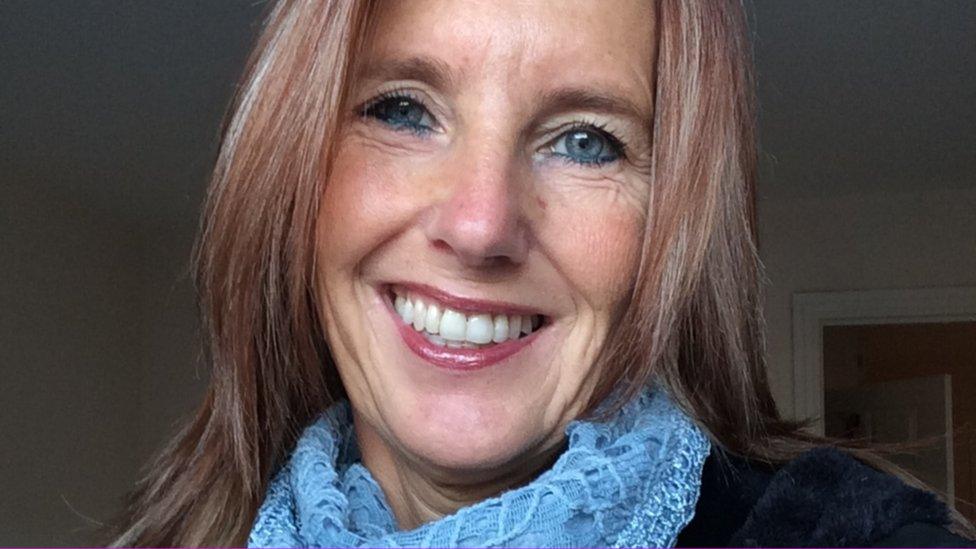Eating disorders can strike in mid-life
- Published

Eating disorders, including anorexia and bulimia, affect a small but substantial number of women in their 40s and 50s, UK research suggests.
The study, involving more than 5,000 women, found just over 3% reported having an eating disorder.
Some said they had experienced it since their teens, others developed it for the first time in their middle age.
Julie Spinks, from Beaconsfield, is 48. She was not involved in the study, but can relate first-hand to its findings.
She developed anorexia for the first time when she was 44.
"It was a complete shock at the time," she recalls. "I knew that I was restricting my food but I didn't ever think I had anorexia.
"I'd been really unhappy at work and had very low self-esteem. To begin with I just thought I had lost my appetite.
"I felt depressed, like I was not worth feeding or existing. I wanted to disappear and fade away."
Julie started to lose weight quite quickly and began to exercise as well.
She realised something was very wrong one day after she had been to the gym.
Mind struggle
"I'd run for about an hour and burnt off about 500 calories. I remember thinking that's about the same as a chocolate bar. That's when I started to link food and exercise."
Julie still did not recognise she had anorexia though. "I thought anorexia was something that happened to other people. It didn't occur to me that I might have it."
After a breakdown at work she went for a mental health assessment. Her doctors then diagnosed her with anorexia and depression.
Julie was given antidepressants and began therapy sessions to help with her eating disorder.
She says it has been an incredibly difficult time - at one point she had to be hospitalised because her weight became dangerously low - but she is now back to a healthy weight and is doing well.
"I'm much better but I would say it is always in the back of my mind. I have good days and bad days. The whole eating process is a struggle," she explains.
"Before I knew about eating disorders I thought anorexia was a teenage thing. I thought it was a thing that affected people who wanted to look good or be a model. But it's not about looks, it's about how you feel."
Dr Nadia Micali, lead author of the study that is published in the journal , said: "Many of the women who took part in this study told us this was the first time they had ever spoken about their eating difficulties, so we need to understand why many women did not seek help."
Tom Quinn from the charity Beat says social stigma is part of the issue.
"Stereotypically, the world sees people with eating disorders as young," he explains.
"When we reinforce stereotypes we also add to the stigma of these serious mental health illnesses and this stigma can prevent individuals coming forward to seek help - a dangerous path to take when the chance of full and fast recovery is vastly improved when treatment is found quickly."
Eating disorders also affect men and Tom adds: "Last year, 15% of calls to our helpline were about someone over the age of 40 and this research from Dr Micali only goes to further support the importance of providing an appropriate treatment pathway for individuals with eating disorders at all ages."
- Published17 June 2016